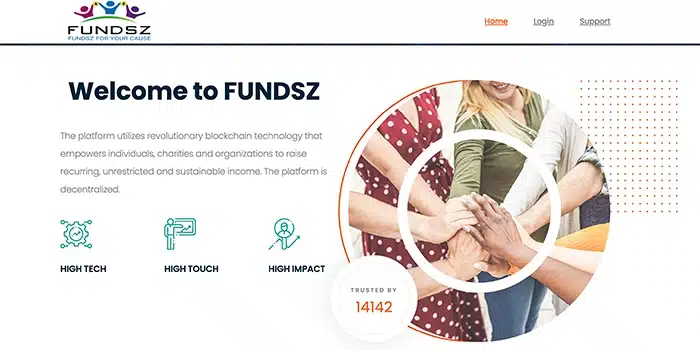
Commodity Futures Trading Commission (CFTC) ……
On Firday, August 11, the Commodity Futures Trading Commission (CFTC) announced that it has filed a complaint in the U.S. District Court for the Middle District of Florida against Rene Larralde of Melbourne, Florida; Juan Pablo Valcarce of West Melbourne, Florida; Brian Early of New Orleans, Louisiana; Alisha Ann Kingrey of Franklin, Arkansas; and their unincorporated entity, Fundsz. The complaint charges them with fraudulent solicitation from clients to purportedly trade in cryptocurrencies and precious metals.
On August 2, U.S. District Court Judge Wendy Berger signed an ex parte statutory restraining order freezing the defendants’ assets, preserving records, and appointing a temporary receiver. A hearing on the CFTC’s motion for preliminary injunction is scheduled for August 23.
In its continuing litigation, the CFTC seeks restitution to defrauded investors, disgorgement of ill-gotten gains, civil monetary penalties, permanent trading and registration bans, and a permanent injunction against further violations of the Commodity Exchange Act (CEA).
“The CFTC continues to root out individuals who defraud customers in the cryptocurrency and precious metals markets,” said Director of Enforcement Ian McGinley. “Though the products fraudsters purport to trade and their methods of attracting victims—in this case through social media—may have changed, the old adage ‘if something sounds too good to be true, it probably is’ remains as valid as ever.”
Case Background
According to the complaint, from approximately October 2020 to the present, the defendants solicited participants with claims that Fundsz has historically produced over 3% returns per week using a “proprietary algorithm” for trading cryptocurrencies and precious metals, among other things they describe as their “secret sauce.” The defendants also claim they made “on time and accurate payments” for seven years, and make claims that show a one-time $2,500 contribution to Fundsz can be expected to grow to $1 million within 48 months with no additional deposits. In addition, the complaint alleges the defendants have pitched Fundsz as if it had a charitable purpose, using the tagline “Fundsz For Your Cause” and falsely implying that contributing to Fundsz would support clean water, humanitarian, health, education, and disaster relief efforts.
This pitch was successful, as the defendants claim to have more than 14,000 participants. But in reality, the complaint alleges, Fundsz does not trade customer funds at all, and any customer gains are illusory, as the defendants simply make up fictional weekly returns to report to customers.
The CFTC cautions that orders requiring repayment of funds to victims may not always result in the recovery of lost money because the wrongdoers may not have sufficient funds or assets.
The Division of Enforcement staff responsible for this matter are Douglas Snodgrass, Matthew Edelstein, Stacie Pan, Elizabeth M. Streit, Scott Williamson, and Robert Howell.
* * * * * *
CFTC’s Precious Metals Customer Fraud Advisory
The CFTC has issued several customer protection Fraud Advisories that provide the warning signs of fraud, including the Precious Metals Fraud Advisory, which alerts customers to precious metals fraud and lists simple ways to spot precious metals scams.
The CFTC also strongly urges the public to verify a company’s registration with the CFTC before committing funds. If unregistered, a customer should be wary of providing funds to that entity. A company’s registration status can be found at NFA BASIC.
Customers and other individuals can report suspicious activities or information, such as possible violations of commodity trading laws, to the Division of Enforcement via a toll-free hotline 866-FON-CFTC (866-366-2382), file a tip or complaint online, or contact the Whistleblower Office. Whistleblowers are eligible to receive between 10% and 30% of the monetary sanctions collected paid from the Customer Protection Fund financed through monetary sanctions paid to the CFTC by violators of the CEA.




